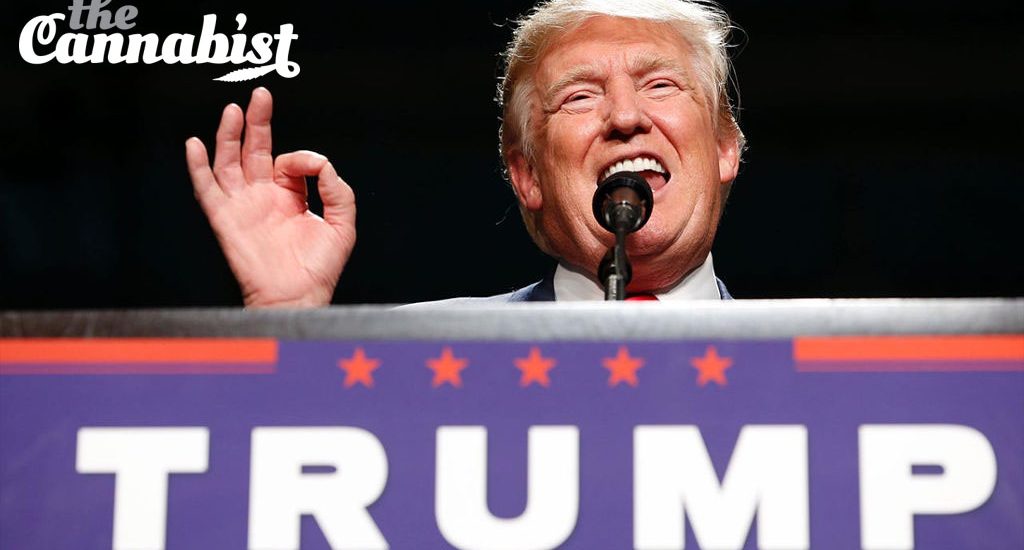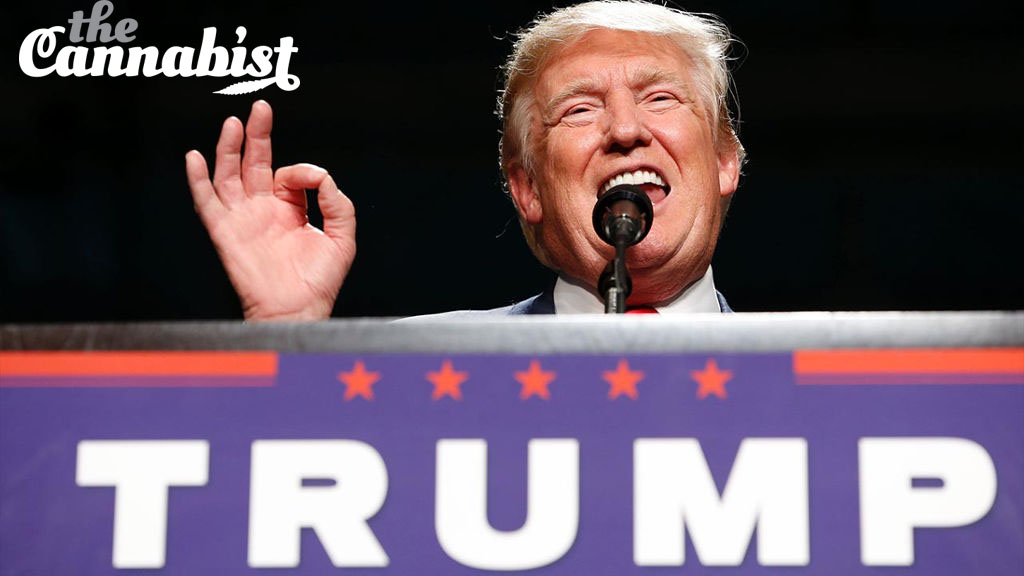- November 10, 2016
- Posted by: webadminx
- Category: News, Uncategorized


By , The Cannabist
Election 2016 proved momentous for the marijuana industry.
Nine states decided whether to legalize the medical use of marijuana or allow recreational use for adults, and voters in at least seven of them — notably California — supported those moves. Success of the ballot measures were projected to vault cannabis to a $21 billion industry by 2020, according to market research firm New Frontier Data and Arcview Market Research, marking a slight increase from its pre-election estimate.
But Tuesday’s big victory for marijuana legalization proponents was tinged with uncertainty. The 29 states with medical marijuana laws and those that now have recreational use regulations would be growing their markets under Republican President-Elect Donald J. Trump.
Both Trump and Democratic nominee Hillary R. Clinton had said they favored states’ rights and indicated they would not dismantle existing marijuana regulations; however, some of Trump’s past statements and his political allies have not been as supportive of the issue, policy experts have noted.
On Wednesday, marijuana legalization proponents remained cautiously optimistic that their industry would remain intact.
Pueblo County Commissioner Sal Pace, a backer of his southern Colorado community’s recreational marijuana industry and booming cannabis cultivation operations, lauded Pueblo’s vote to retain its existing recreational marijuana market and the potential economic boon that may come from areas such as wholesale cultivation and research.
Pace’s optimism was slightly tempered by the unknowns at the federal level.
“(Trump has said) he’s not changing any laws … I hope that’s the only campaign promise he keeps,” Pace said. “He is surrounded by a bunch of those who are terrible on the issue.”
One of the concerns highlighted by marijuana industry members is who will serve as U.S. Attorney General, looking to the possible appointment of New Jersey Gov. Chris Christie or former New York City Mayor Rudy Giuliani, who have taken hard-line stances against legalization.
“While the marijuana industry would be concerned if either were appointed as Attorney General, the size of the burgeoning legal marijuana industry in the many states that have now legalized it for recreational and medical purposes is already so big that it’s impossible for the federal government to roll back their policy of allowing states to adopt their own policy in this area,” Aaron Herzberg, a partner at California medical marijuana real estate firm CalCann Holdings Inc., said in a statement. “It’s hard to conceive how the federal government could reverse its policy stated in the Cole Memorandum issued in August of 2013, which essentially allows states to adopt their own policy in this area.”
In August, the U.S. Drug Enforcement Administration stood pat on marijuana, keeping it as a Schedule I substance on the Controlled Substances Act. The agency, however, did open some doors to more federally funded medical marijuana research.
Marijuana Majority, a legalization advocacy group, launched a post-election petition calling for an end to federal prohibition of marijuana and for Trump to follow through on pledges toward states’ rights and existing marijuana laws.
“President-Elect Trump has clearly and repeatedly pledged to respect state marijuana laws, and we fully expect him to follow through on those promises, not only because it is the right thing to do but also because these reforms are broadly supported by a growing majority of voters,” Tom Angell, chairman of Marijuana Majority, said in a statement. “Reversing course and going against the tide of history would present huge political problems that the new administration does not need.”
The marijuana markets, however, might not be too big to pick apart, said Mark Kleiman, a public policy professor at New York University’s Marron Institute.
“The thing that people should remember is, if the government wants to shut this down, they can do it on a day’s notice,” he said.
An anti-marijuana attorney general and White House administration could prosecute industry participants in each of the legal states and direct federal law enforcement to shut down operations and make arrests.
“It would be pretty symbolic, in terms of any impacts on the cannabis problem,” he said. “In terms of a dramatic demonstration of restoring law and order, it would be a pretty quick one.”
The doom-and-gloom possibility is there, but Kleiman said he would be surprised if the administration goes against Trump’s previous statements that he would leave it to the states. However, the prospect of national legalization might be more of a reach, he added.
Source: TheCannabist
Leave a Reply
You must be logged in to post a comment.
